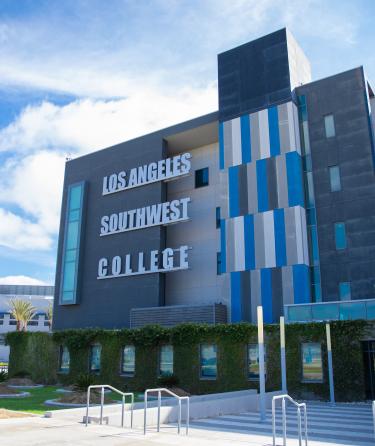Office of Institutional Effectiveness
The Office of Institutional Effectiveness (OIE) is responsible for conducting institutional research and developing information in support of institutional accountability, institutional assessment, unit assessment, planning, accreditation, and grant development.
Need assistance? Please use the button below to submit a request to OIE.
In compliance with the Student Right-to-Know and Campus Security Act of 1990 (Public Law 101-542), it is the policy of our college district to make available its completion and transfer rates to all current and prospective students. Every Fall, a cohort of all certificate-, degree-, and transfer-seeking first-time, full-time students are tracked over a three year period. Their completion and transfer rates are then determined. Those rates do not represent the success rates of the entire student population at the College nor do they account for student outcomes occurring after this three year tracking period. To see the outcomes for the latest cohort, follow the link.
California License Examination Passage Rates
On September 24, 2010, Assembly Bill (AB) 2086 was chaptered into California law. This bill amends Section 69432.7 of the California Education Code that redefines "qualifying institution" for purposes of the Cal Grant Program. This bill requires Cal Grant participating institutions to provide information on where to access California license examination passage rates for graduates of certain undergraduate programs if that data is electronically available through the Internet Web site of a California licensing or regulatory agency. This change became effective on January 1, 2011.
Passage rates provided must be for the most recent available year and be for graduates of its undergraduate programs leading to employment for which passage of a California licensing examination is required. This law does not require institutions to calculate and publish rates, but they must provide a link to the appropriate California licensing or regulatory agency that does.
Los Angeles Southwest College is in compliance with the requirements of AB 2086. See program information below for license examination pass rates for LASC academic programs. Data will continue to be updated as California licensing and/or regulatory agencies make the information electronically available.
- Chemical Dependency Program: California Association for Alcohol/Drug Educators Exam Statistics (CAADE)
Registered Nursing Program
Upon completion of the Associate Degree Nursing Program at Southwest, a student is eligible to take the NCLEX-RN (National Council Licensure Examination for Registered Nurses). Once passed, the student becomes a Registered Nurse (RN) in the state of California.
NCLEX Examination Pass Rates are found at the CA Board of Registered Nursing
The Accrediting Commission for Community and Junior Colleges requires that colleges establish Institution-set Standards (ISS) for student achievement that is appropriate to its mission and assesses how well the college is achieving the ISS in pursuit of continuous improvement (Standard I.B.3, ER 11). Los Angeles Southwest College first established ISS in 2015. In fall 2019, the college reviewed the ISS standards and established new ISS and stretch goals (SG); in spring 2020 the revised ISS were adopted by the college. Learn more.
Visit the Los Angeles Community College District Institutional Review Board web page for information on conducting research at our district.
